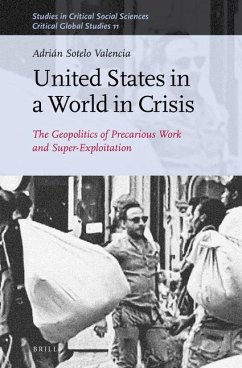Sotelo's book explores the dimensions of super-exploitation in the context of a structural crisis of capitalism and imperialism. Various theoretical debates are examined regarding the expansion of super-exploitation in advanced capitalism, highlighting the precariousness of labor that has resulted.
Bitte wählen Sie Ihr Anliegen aus.
Rechnungen
Retourenschein anfordern
Bestellstatus
Storno





